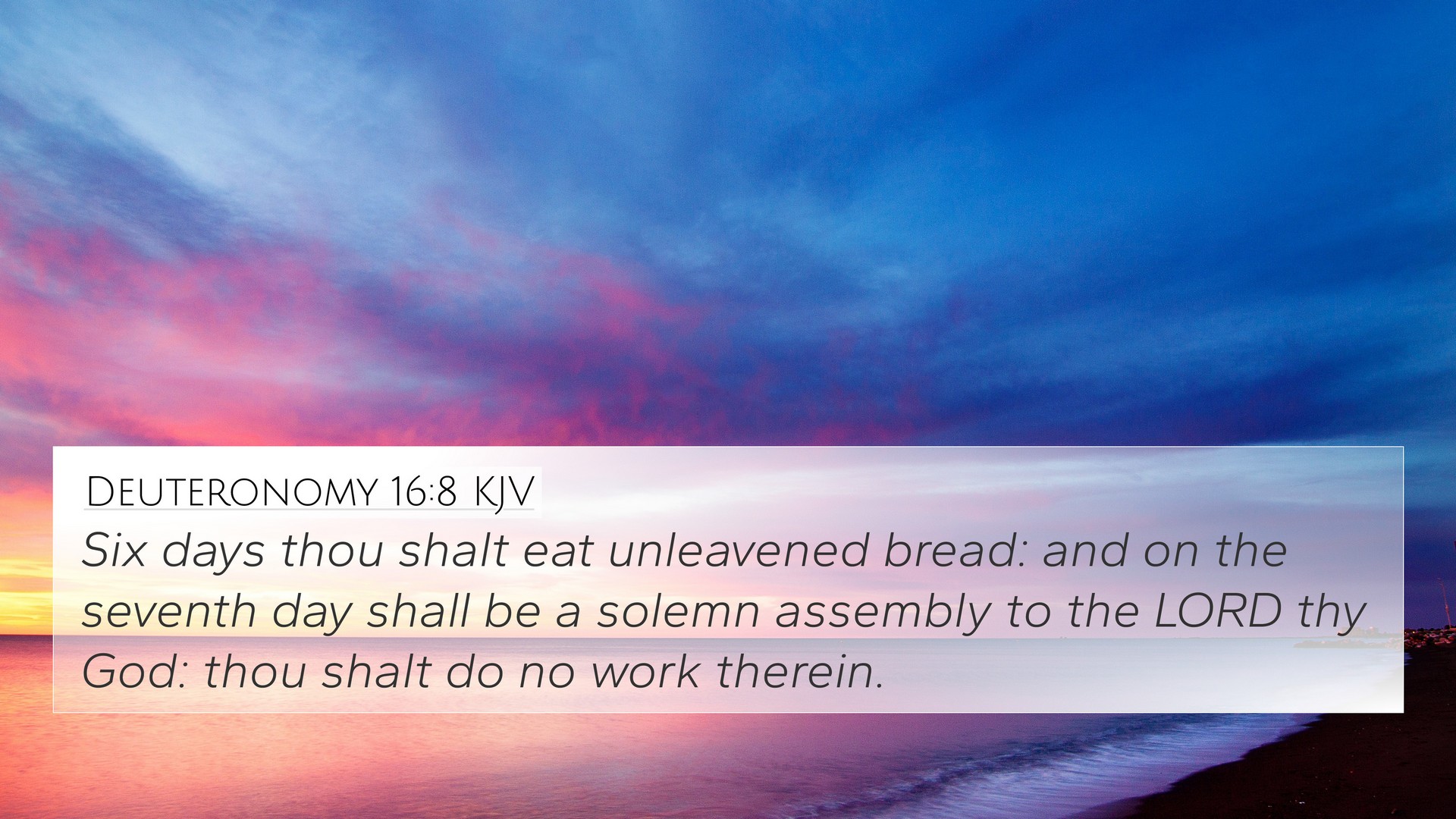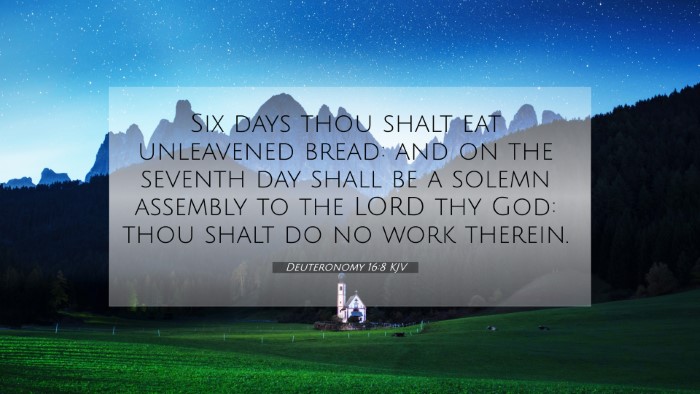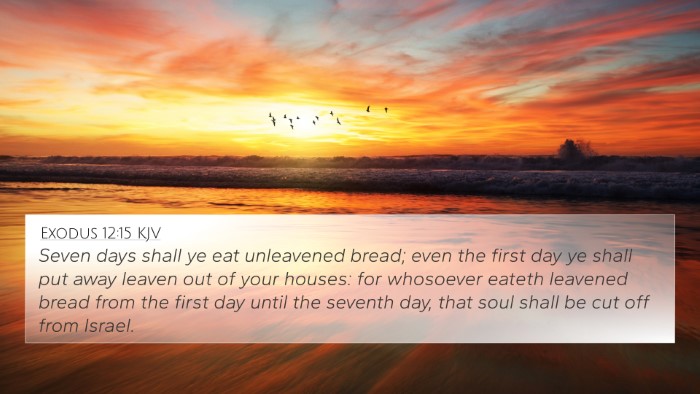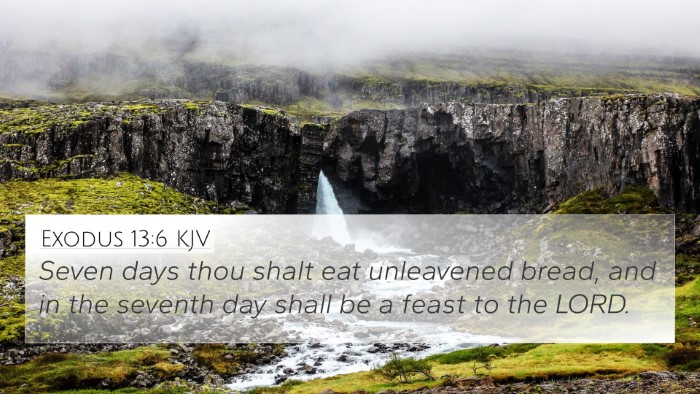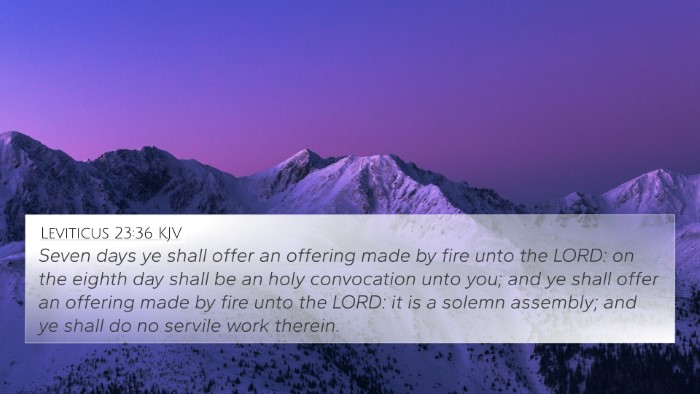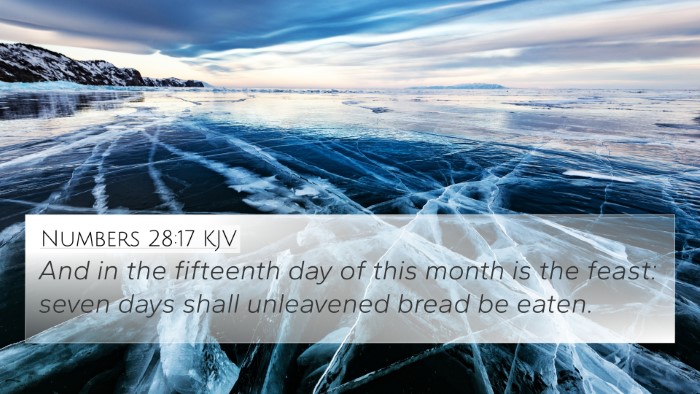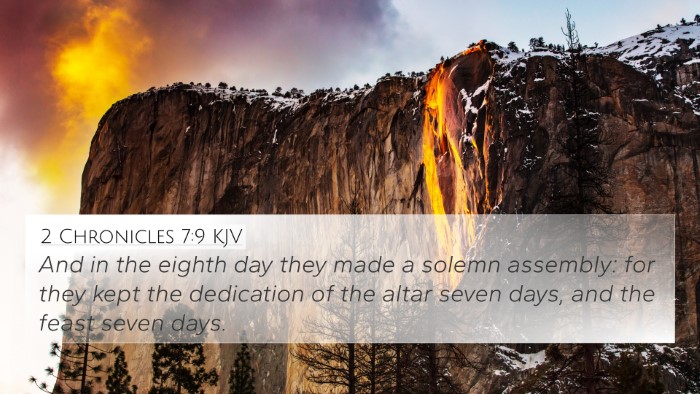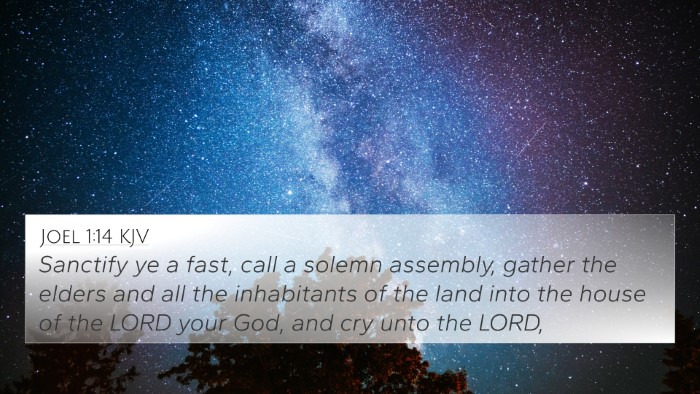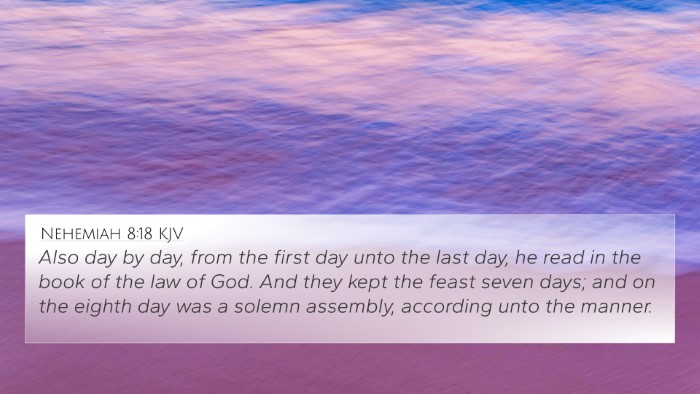Understanding Deuteronomy 16:8
Bible Verse: Deuteronomy 16:8 - "Six days you shall eat unleavened bread, and on the seventh day there shall be a solemn assembly to the LORD your God. You shall do no work on it."
Meaning and Interpretation
The verse from Deuteronomy 16:8 highlights the importance of observing the Feast of Unleavened Bread in a structured manner. It emphasizes a period of six days during which the Israelites are instructed to consume unleavened bread, followed by a day of rest and solemn assembly dedicated to worshiping the LORD. This underscores both the physical preparation for this feast and the spiritual observance involved.
Context and Significance
This command is part of the larger context of the festivals established in the Mosaic Law, serving as a reminder of the Israelites' exodus from Egypt and God's deliverance. The rest day is emphasized to cultivate a spirit of holiness and community worship.
Commentary Insights
- Matthew Henry: Advocates that this command serves not only to commemorate the liberation from Egypt but also to establish a rhythm of work and rest, indicating God’s design for human life. The focus on no work on the Sabbath symbolizes spiritual rejuvenation.
- Albert Barnes: Remarks on the symbolism of unleavened bread, representing purity and the lack of sin. He connects the need for physical sustenance to spiritual nourishment derived from time spent in God's presence on the seventh day.
- Adam Clarke: Discusses the historical context of the Israelites and reinforces the need for ceremonial observances as a means to maintain their identity as God's chosen people. He emphasizes the communal aspect of the solemn assembly.
Connections Between Bible Verses
Understanding Deuteronomy 16:8 can be enriched through cross-references. Here are some key verses that relate to this passage:
- Exodus 12:15: "Seven days you shall eat unleavened bread." - Directly speaks to the observance of unleavened bread.
- Leviticus 23:6-8: Details the Festival of Unleavened Bread.
- Matthew 26:17-19: The Last Supper, relating to the Passover meal which includes unleavened bread.
- 1 Corinthians 5:7-8: Paul encourages believers to remove the old leaven, connecting to the symbolism of purity.
- Hebrews 4:9-10: Discusses the concept of rest corresponding to God's Sabbath rest.
- John 6:35: "I am the bread of life," showcasing the spiritual significance of bread in Jesus' teachings.
- Colossians 2:16-17: Paul refers to the festivals of the Old Testament as shadows of things to come.
Thematic Bible Verse Connections
This verse connects with several themes in scripture, such as:
- Redemption and Deliverance: The story of Exodus is fundamental in understanding God's liberation of His people.
- Holiness and Purity: The concept of unleavened bread symbolizes the need for purity in the lives of believers.
- Rest and Worship: The command to cease work and gather for worship reflects the broader biblical theme of Sabbath rest.
Conclusion
Deuteronomy 16:8 not only serves as a historical commandment but also carries profound implications for today’s Christian practice through its emphasis on community worship, the need for purity, and the importance of recognizing and remembering God's acts of salvation. Understanding and cross-referencing this verse can deepen one's insight into the continuity of biblical themes throughout scripture.
How to Study and Use Cross-References
Employing cross-referencing tools and methods can significantly enhance your study of the Bible. Here’s how to effectively draw connections:
- Bible Concordance: Utilize a concordance to locate verses related by keywords.
- Comparative Bible Analysis: Analyze how different books of the Bible address similar themes.
- Bible Reference Resources: Leverage cross-reference study guides available in various formats.
- Inter-Biblical Dialogue: Engage in discussions or studies that explore the conversation between Old and New Testament scriptures.
Final Thoughts
Incorporating these cross-references enriches understanding and provides invaluable insights into the broader narrative of the Bible. Whether preparing for a sermon or personal Bible study, mastering the art of cross-referencing can illuminate the scriptures like never before.
